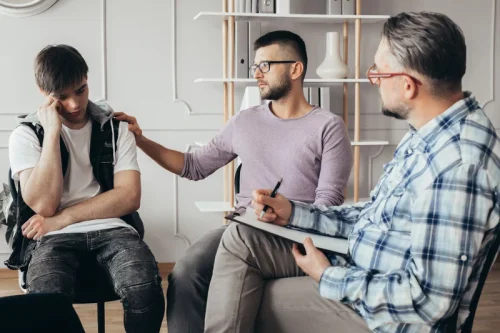
A good way of keeping track of how much you’re drinking – to help spot patterns, avoid your triggers and stay within the low risk drinking guidelines – is with the MyDrinkaware app. People who are depressed and drink too much have more frequent and severe episodes of depression and are more likely to think about suicide. Kennedy suggests that treatment options can vary depending on the severity of your condition. Or you might attend an intensive inpatient group a few times each week.

Drink plenty of water
- The ECT process has evolved significantly, and the current form is much gentler and more targeted than in the past.
- Alcohol can provide a quick burst of happiness, confidence, and euphoria.
- If you think you have a problem with either, talk to your doctor or therapist.
- There are a multitude of different treatment options available for those struggling with depression and an alcohol use disorder.
- The NHS website, Every Mind Matters, has advice on how to access support and treatment for depression in England.
Drinking persistently and excessively can increase your risk of developing a major depressive disorder. It can also aggravate symptoms of pre-existing depression and endanger your health and mental health. If you drink regularly to manage depression symptoms, it may have be beneficial to work with a therapist who specializes in treating co-occurring depression and alcohol use. Bipolar disorder and alcohol use disorder, or other types of substance misuse, can be a dangerous mix. Also, having both conditions makes mood swings, depression, violence and suicide more likely. The National Alliance on Mental Illness (NAMI) offers education and support for patients and families affected by mental health disorders.
Long-Term Risks of Alcohol Dependence
As it turns out, it’s a real phenomenon (clinically it’s called substance-induced mood disorder) that happens as a result of the physiological and psychological impact of drinking too much. Over time, your brain’s reward pathway builds tolerance and requires more and more dopamine (via alcohol) to feel pleasure. This can lead to addiction and feelings of depression in the absence of the rewarding substance. One study of 421 people found that 25% had both alcohol misuse and depression.

Alcohol use and depression symptoms
If you need urgent help with your does drinking make your depression worse mental health, you don’t have to struggle alone. Women are more than twice as likely to start drinking heavily if they have a history of depression. Experts say that women are more likely than men to overdo it when they’re down.
Alcohol Use Disorder and Depression
Having an extra drink or two once in a while doesn’t automatically translate to heavy drinking. The only certain way to prevent depression after drinking is to avoid alcohol entirely. You can, however, take steps to lower your chances of emotional side effects when drinking. Taking some time for productive relaxation can also help ease feelings of depression. You might feel depressed after drinking because alcohol itself is a depressant.
